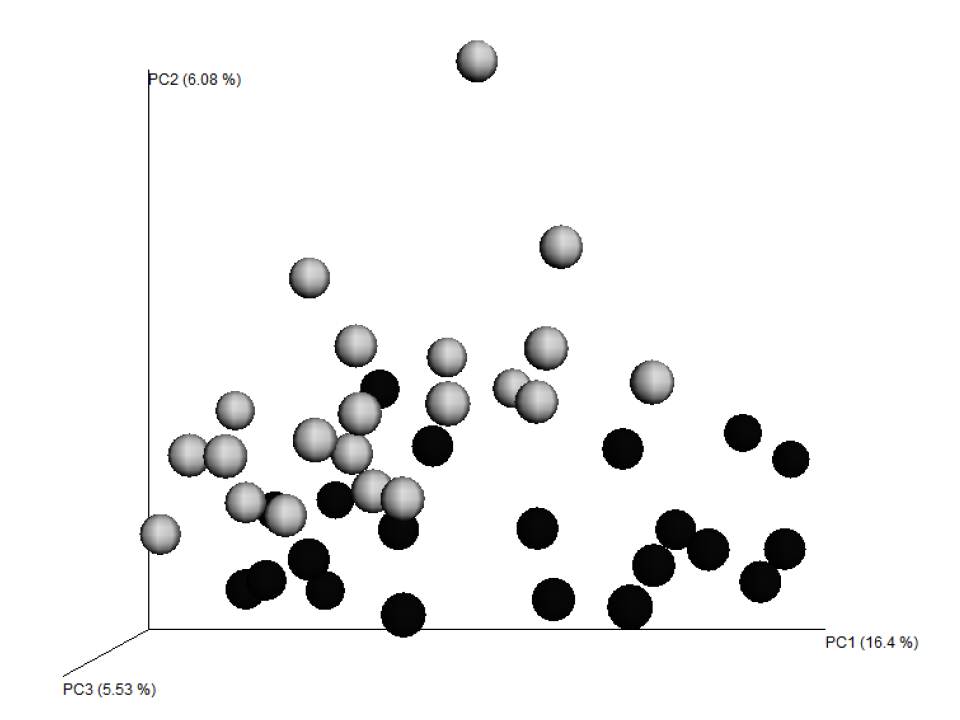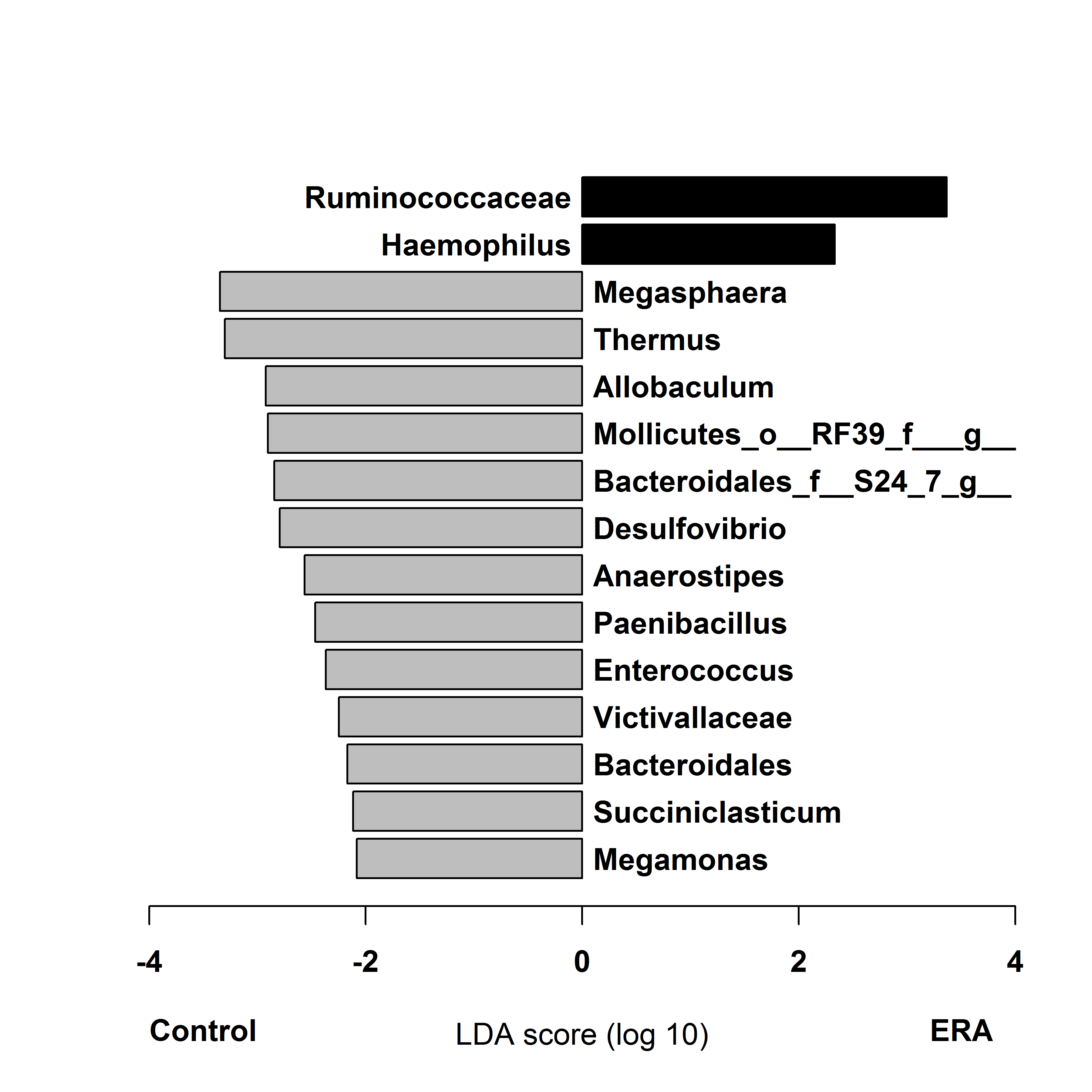Session Information
Date: Tuesday, November 10, 2015
Title: Spondylarthropathies and Psoriatic Arthritis Pathogenesis, Etiology Poster I
Session Type: ACR Poster Session C
Session Time: 9:00AM-11:00AM
Matthew L Stoll, Pamela F Weiss, Jennifer E Weiss, Peter A
Nigrovic, Lynn Punaro, Charles Spencer, Ken Schikler, Casey Morrow, Elliot
Lefkowitz
Enteric flora in newly diagnosed spondyloarthritis: a
collaborative study
Background/Purpose: Spondyloarthritis (SpA) affects
1% of the population in the United States. We have previously shown altered
microbiota in children with established as well as newly diagnosed juvenile SpA
(enthesitis-related arthritis; ERA). A limitation of this study is that many of
the subjects had been exposed to long-term immunosuppressive therapy. Thus,
through the CARRA network, we designed a study in which newly diagnosed
subjects with ERA from around the country submitted fecal specimens for
assessment of baseline microbiota. We hypothesized that we would identify
similar alterations in microbiota in these newly diagnosed ERA subjects.
Methods: This is a collaborative study with nine
participating sites. At each site, subjects newly diagnosed with ERA and
unexposed to systemic immunosuppressive therapy are enrolled. Each site also
enrolls normal healthy controls. Stool specimens are collected at home and
shipped overnight to the PI via commercial carrier. Purified DNA undergoes PCR
amplification using primers designed to the conserved region flanking the
variable IV region from the 16S rDNA gene. The PCR products are run on the MiSeq
flowcell. Analysis is performed with the Quantitative Insight into Microbial
Ecology (QIIME) suite, and taxonomic comparisons are performed with LEfSe.
Results: Nine sites agreed to participate in the
study. So far, six sites have enrolled a total of 24 subjects, of whom 17 have
submitted fecal specimens. Nine of them, along with 12 newly diagnosed ERA
subjects from Childrens of Alabama and 21 controls matched for age and sex,
underwent 16S sequencing. Preliminary analysis shows no obvious clustering from
samples from different sites, supporting the validity of pooling their
specimens; however, principal coordinates analysis revealed that there was
substantial clustering by diagnosis (Figure 1). Diminished alpha diversity was
observed among ERA patients, consistent with findings at the taxonomic level of
decreases in a number of rare bacteria among this group (Figure 2.) This result
is consistent with a recent study in adults with psoriatic arthritis.
Conclusion: Although we have not so far been able to
replicate previous findings of decreased F. prausnitzii levels in ERA,
our data does suggest that diminished microbial diversity may be part of
disease pathogenesis.


To cite this abstract in AMA style:
Stoll ML, Weiss PF, Weiss JE, Nigrovic PA, Punaro MG, Spencer CH, Schikler KN, Morrow CD, Lefkowitz EJ. Enteric Flora in Newly Diagnosed Spondyloarthritis: A Collaborative Study [abstract]. Arthritis Rheumatol. 2015; 67 (suppl 10). https://acrabstracts.org/abstract/enteric-flora-in-newly-diagnosed-spondyloarthritis-a-collaborative-study/. Accessed .« Back to 2015 ACR/ARHP Annual Meeting
ACR Meeting Abstracts - https://acrabstracts.org/abstract/enteric-flora-in-newly-diagnosed-spondyloarthritis-a-collaborative-study/
